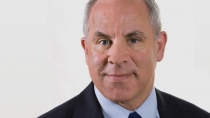Programs for Struggling Teens: Alternative High Schools
Alternative high schools in the home community provide education, including special education services, to teens who have foundered academically or socially in traditional high schools. The schools may be freestanding or sponsored by a community mental health center, family service agency, school district, or “collaborative” composed of several social services and educational programs. Some alternative high schools, especially those affiliated with a community mental health center, offer “in house” mental health services for students who struggle with significant emotional and behavioral issues.
Alternative schools tend to serve students who respond well to a smaller and a more individualized academic program than is typically available in traditional high schools. Alternative schools may provide frequent opportunities for students to express themselves creatively through music, art, drama, and writing. Many alternative schools encourage students to do community-based internships in local organizations, agencies, and businesses. They also emphasize student-led initiatives and encourage relationships between students and mentors or coaches. Creative, nontraditional approaches also are used during class sessions to engage students who have foundered in other school settings, for example, encouraging students to use video equipment or dramatic presentations to communicate their ideas.
Alternative high schools tend not to arrange classrooms in rows of desks, favoring instead seats around tables that facilitate discussion. In many alternative high schools, rather than assign students traditional grades, teachers write detailed narrative assessments that summarize students’ progress, successes, challenges, and learning needs.
An Example of an Alternative High School
“Alternative High School” (AHS) is located in a medium-sized city (population 195,000). AHS provides its culturally diverse student body with small classes (five to 15 students), personalized advisement, and a strong emphasis on the arts. The school serves no more than 100 students. A personal educational plan is developed for each student according to his or her unique goals, interests, strengths, and challenges. Students receive a comprehensive assessment of their progress rather than traditional grades along with pass-fail assessments of their classroom work and extracurricular activities.
Each student selects an adviser from among the school’s faculty. The advisers coach, counsel, and mentor their students. Advisers also help students with postgraduate planning. AHS actively integrates the arts into its curriculum. Courses that include painting, drawing, photography, ceramics, video, and performing arts encourage students’ exploration, creativity, and constructive experimentation. The school social worker helps to facilitate mental health services for students who may benefit from them.
AHS’s curriculum is based on theory and research that support the use of personalized instruction to address students’ individual needs and interests; small class size, where teachers and students know each other well and work in an atmosphere of trust and high expectations; multiple assessments that are based on performance of authentic tasks; democratic and equitable school policies and practices; and close partnerships with the local community.

Frederic Reamer Ph.D. Bio
Dr. Reamer is a professor in the Graduate Social Work Program at Rhode Island College.
Learn More